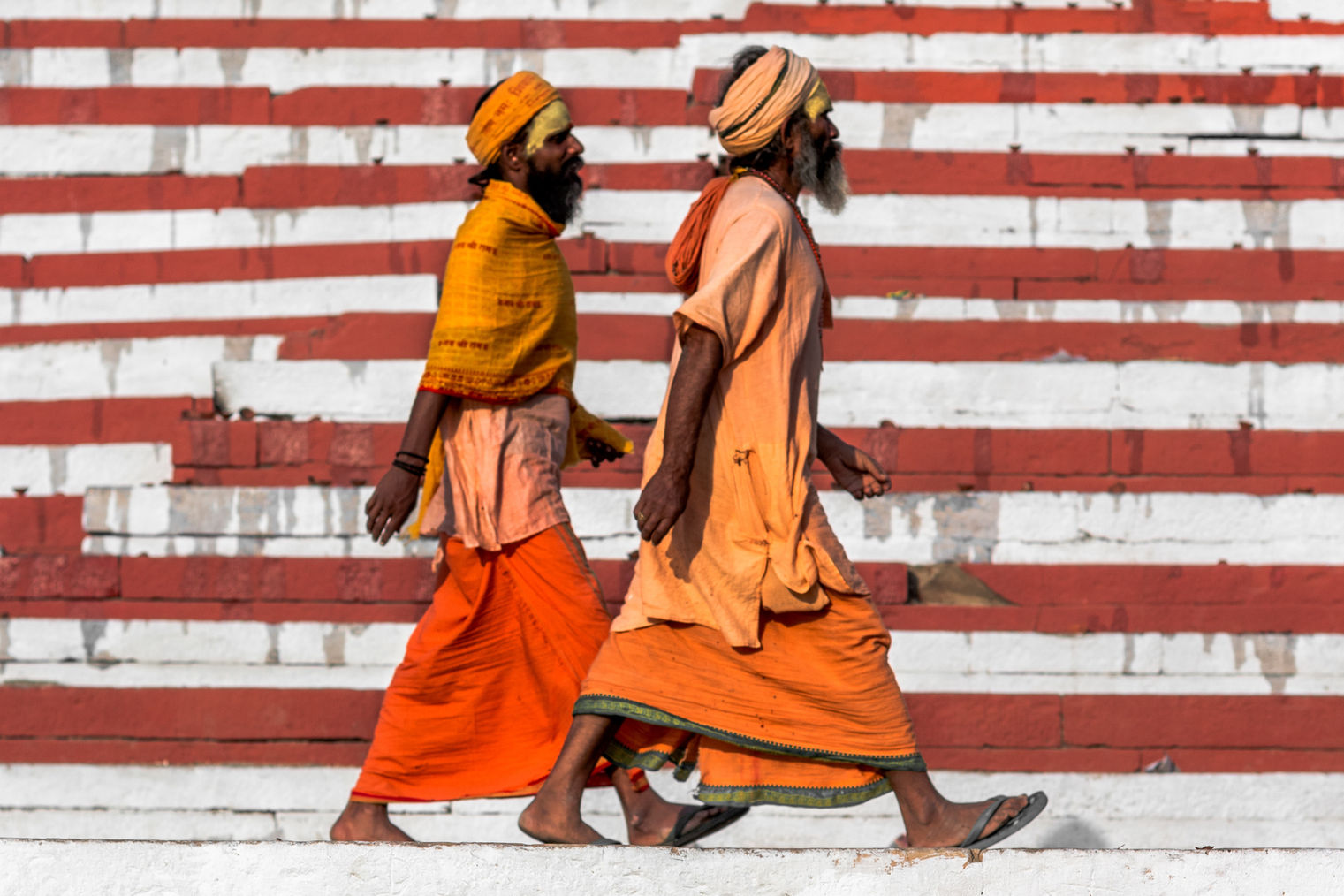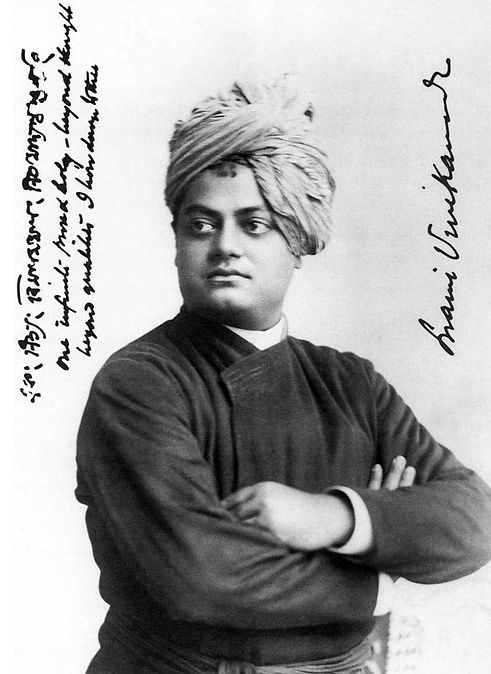


The journey of Global Hindu Renaissance is not a political movement. It is not an attempt to gain power over some individuals or communities or nations. Hindu Renaissance is a major transition point in history. It is the end of kali-yug – the thousand year period of human history when machines become supreme and dharm weakens. We are fortunate to be living at a time when the change of epoch has just begun. However, there is also a challenge for all of us living through this transition phase of human history. We must be the flag-bearers of the change. We must start the spark that will brighten up the whole world. The sun that will illuminate the world has to first rise in our hearts.
Hindu Renaissance is first an individual journey. While Christianity has its Church, Islam has its mosques and Jews have their synagogues, Hinduism lives in the hearts of Hindus. Let each one of us discover the Muni who lives in one’s heart and appears when all the negativities of anger, greed, conceit etc. are removed. Let us be guided by the learned ones while we keep listening and obeying the voice of the Muni in our hearts.
This is a long journey that will be as much internal as external. The path is clear – get over the negativities, become a dev and follow the path of dharm, arth and kaam. Anyone who walks on this path will surely be rewarded with peace, love, prosperity and happiness. The person who walks this path will have the support of the Cosmic Being and all the forces of the Cosmic Being in all their manifestations. Let there be no doubt about this.
***DHARMO RAKSHATI RAKSHITAHA***

Hinduism needs to address these so-called Christians. Hindus must tell them that Hinduism is not opposed to Jesus Christ. Most of them have already liberated themselves from the Church and the Bible. Hinduism provides them the freedom to continue worshipping Jesus and God the way they have always done while adopting Hindu philosophical framework for taking key decisions of their life. Recall the guidance in this respect given by Swami Vivekananda at the World Parliament of Religions, Chicago, 1893.
According to him, the Hindu religion does not consist in struggling and attempts to believe a certain doctrine or dogma, but in realising- not in believing but in being and becoming. He also dwelt briefly with the Hindu philosophy about “body and soul”, ”the law of Karma” and the law of reincarnation. He also informed the audience that Hindus have received their religion through revelation, the Vedas. Vedas mean the accumulated treasury of spiritual laws discovered by different persons in different times. The discoverers of the laws are called Rishis, and we honour them as perfected beings. Defining his view on ‘universal religion’, he said: “If there is ever to be a universal religion, it must be one which will have no location in place or time; which will be infinite, like the God it will preach, and whose sun will shine upon the followers of Krishna and of Christ, on saints and sinners alike, which will not be Brahminic or Buddhistic, Christian or Mohammedan, but the sum total of all… It will be a religion which will have no place for persecution or intolerance in its polity, which will recognise divinity in every man and woman, and whose whole scope, whose whole force, will be centred in aiding humanity to realise its own true divine nature. Offer such a religion and all the nations will follow you.”
In his final address, the Swami made a grand appeal for the harmony of religious faiths. To achieve this, he said: “The Christian is not to become a Hindu or Buddhist, nor is a Buddhist or a Hindu to become Christian. But each must assimilate the spirit of the others and yet preserve his individuality and grow according to his own law of growth.”
It is important to assert that Hindus do not seek to convert or impose. There is no attempt to even liberate. Each individual must walk the path of liberation oneself. Hinduism and learned men and women of Hindu thought should only be glad to offer assistance and guidance on the path of liberation seeking nothing in return.
While Hindus must counter and oppose one-bookisms, it is necessary to not lose the message of love and compassion for one and all. Let us aspire to make friends, to make brothers, to make sisters and to love even those who do not think like the way we do. We do not wish to change anyone unless one wishes to do so. We do not wish to impose our rituals and practices on anyone. Of course, if one wishes to seek and understand one’s own religious practices – lost and buried by hundreds of years of oppression of some one-bookism – we shall be glad to act as a friend. Hinduism sees itself as a friend of all “pagan” religions.

The Politics of "Intolerance"
Probably no concept has more currency in our politically-correct culture than the notion of tolerance. However, we are in danger in Great Britain of one of the noblest of virtues becoming so distorted that it ends up as a vice.
In response to secularist, post-modernist ideology, a range of laws have been passed in the last decade whose stated purpose is to promote tolerance and fight discrimination but whose effect has in fact been to become a weapon of attack on Christianity.
There's one word that can stop you in your tracks, get you suspended from work, dismissed at work, or side-lined, and that word is ‘intolerant.’ In today’s society, the tolerant person allegedly occupies neutral ground, a place of complete impartiality where each person is permitted to decide for himself - no judgments allowed, no ‘forcing’ of personal views. That all views are equally valid is one of the most entrenched assumptions of a society committed to relativism. And it's a myth! It doesn’t work. It leads to Equality and Diversity chaos.
This stand serves as a warning that the modern notion of tolerance is seriously misguided. True tolerance presupposes disagreement, whereas the new definition of tolerance does not, for this modern definition of tolerance turns the classical formula for tolerance on its head. It says: Be egalitarian regarding ideas. Be elitist regarding persons. If you reject another's ideas, you're automatically accused of disrespecting the person. On this new view of tolerance, no idea or behaviour can be opposed - even if done graciously - without inviting the charge of incivility. To say I'm intolerant of the person because I disagree with his ideas is confused. It also leads to this notion that all ideas must be equally valid, but this clearly can’t be right. Ironically, this kind of tolerance results in elitism regarding other people. It leads to the sort of philosophy that says: If I think my ideas are better than another's, I can be ill-treated as a person, publicly marginalized and verbally abused as bigoted, disrespectful, ignorant, indecent and intolerant.

Family Retreats
I'm a paragraph. Click here to add your own text and edit me. I’m a great place for you to tell a story and let your users know a little more about you.
